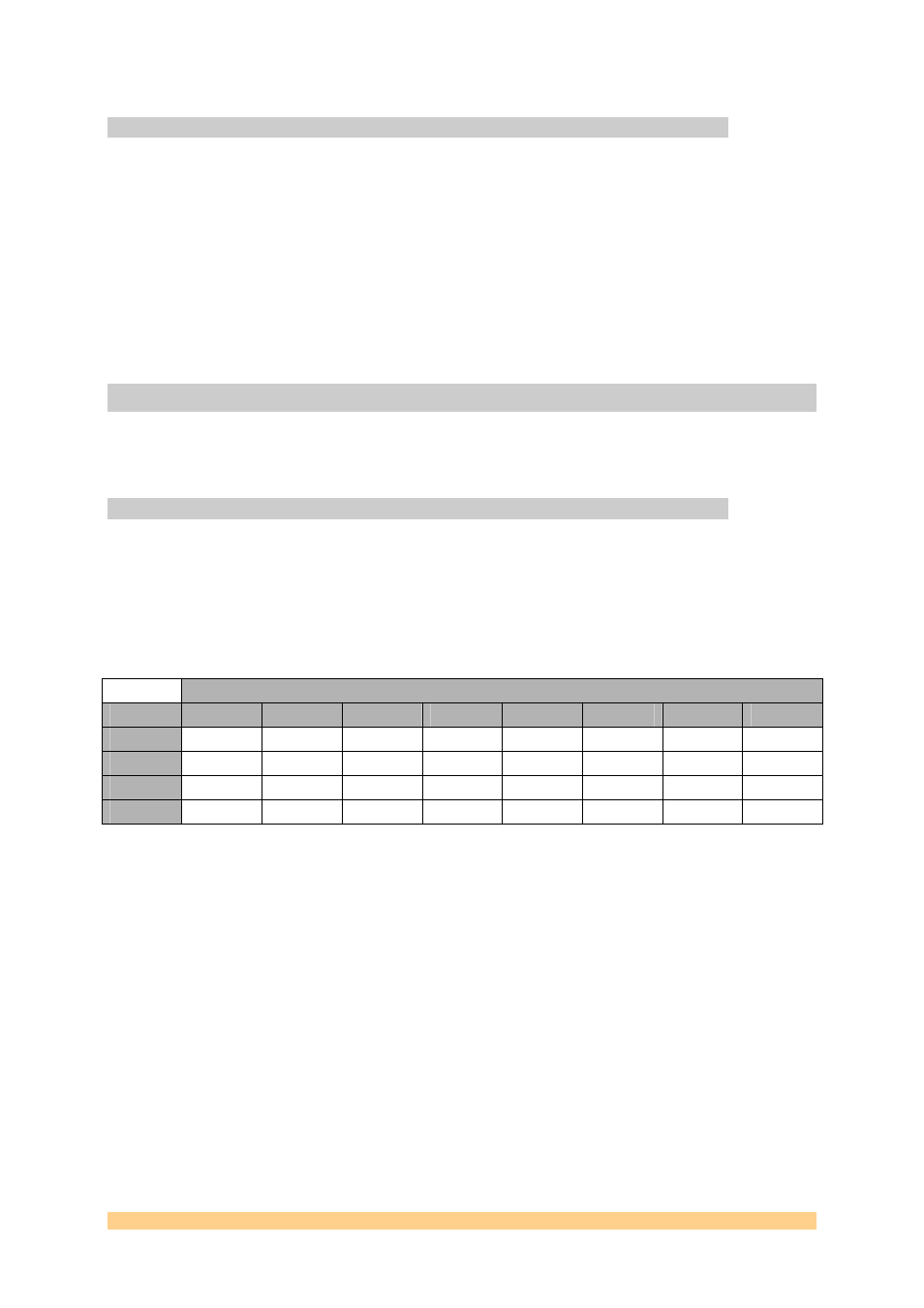11 leds, 5 control register settings, 1 control packet structure – Sundance SMT399-160 User Manual
Page 13: Leds, Control register settings, Control packet structure, Figure 7 – setup packet structure

4.11 LEDs.
There are 8 LEDs on the board. Only 4 are user defined, i.e. accessible from the FPGA on the
SLB base module. These 4 leds are labelled on silkscreen LED1, LED2, LED3 and LED4. In
the standard firmware provided with the board, LED0 and LED2 are flashing in opposite
phase as soon as the FPGA is configured and the on-board crystal of the SLB based module is
working. LED1 is connected directly to the trigger signal coming from J11. LED3 is connected
directly to the trigger signal coming from J23. External triggers have no more action than
driving LED1 and LED3.
The other 4 LEDs are connected on power rails and should be ON at all time. If not it is
strongly recommended to put the module off power and to contact Sundance.
5 Control Register Settings
The Control Registers control the complete functionality of the SMT399-160. They are setup
via the Comport3 in the standard FPGA firmware provided.
5.1 Control Packet Structure
The data passed on to the SMT399-160 over the Comports must conform to a certain packet
structure. Only valid packets will be accepted and only after acceptance of a packet will the
appropriate settings be implemented. Each packet will start with a certain sequence
indicating the start of the packet (0xFF). The address to write the data payload into will
follow next. After the address the data will follow. This structure is illustrated in the following
figure:
Byte Content
Byte
Bit 7
Bit 6
Bit 5
Bit 4
Bit 3
Bit 2
Bit 1
Bit 0
0
‘1’ ‘1’ ‘1’ ‘1’ ‘1’ ‘1’ ‘1’ ‘1’
1
Address 7
Address 6
Address 5
Address 4
Address 3
Address 2
Address 1
Address 0
3
Data 15
Data 14
Data 13
Data 12
Data 11
Data 10
Data 9
Data 8
4
Data 7
Data 6
Data 5
Data 4
Data 3
Data 2
Data 1
Data 0
Figure 7 – Setup Packet Structure.
User Manual SMT399-160
Page 13 of 39
Last Edited: 24/05/2007 17:12:00
